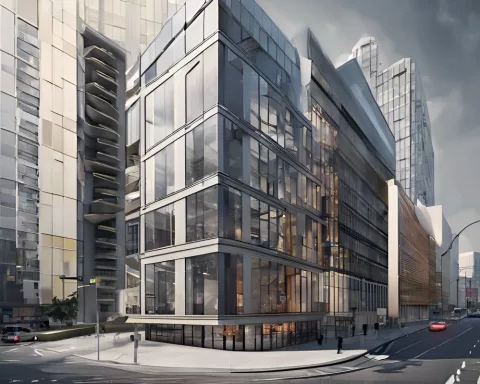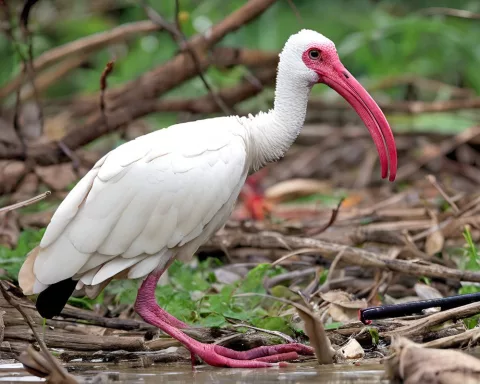Hosting international conferences like the BRICS Summit can bring significant economic benefits to countries such as increased tourism, trade, investment, and technology transfers. However, some individuals and political parties may misunderstand the costs and benefits of such events, leading to criticism. In the case of the BRICS Summit, the Department of International Relations and Cooperation (DIRCO) responded to the Democratic Alliance’s critique by highlighting the substantial economic benefits and diplomatic relationships formed during the event. The long-term rewards of hosting international conferences contribute to global progress and cooperation.
What are the economic benefits of hosting international conferences?
Hosting international conferences can bring substantial economic benefits to a country. These benefits can include increased tourism, trade, investment, and technology transfers. Furthermore, hosting such events enables countries to form valuable relationships, cooperation, and partnerships with other nations. While costs can be substantial, the long-term rewards are significant and contribute to global progress and cooperation.
Debunking Democratic Alliance’s Critique on BRICS Summit Costs
The Department of International Relations and Cooperation (DIRCO) has recently expressed disappointment towards the Democratic Alliance’s (DA) misunderstanding of the economic benefits derived from hosting international conferences, such as the XV Brazil, Russia, India, China, and South Africa (BRICS) Summit held in Johannesburg. DA’s Parliament member, Ms. Emma Louise Powell, criticized the expenses related to the organization of the event. However, DIRCO maintains that the advantages far surpass the costs.
In fact, DIRCO’s contribution to the successful hosting of the BRICS Summit amounted to just over R100 million. Comparatively, the economic benefits reaped by the city of Johannesburg were considerably more substantial. South Africa offered courtesy support to only four delegates per country, adhering to standard international practices. Each participating delegation brought along additional members who paid in full for their accommodation, meals, and other necessities. One such delegation even included over 100 people, all of whom stayed at a hotel and paid in full.
Ms. Powell seemed to overlook the positive feedback received from entrepreneurs who were interviewed across various media channels. These business professionals expressed satisfaction with the opportunities and connections established during the BRICS Summit. As a member of the most prominent group of emerging countries globally, South Africa had the obligation to host the BRICS Summit, occurring every five years.
The Multifaceted Benefits of the BRICS Summit for South Africa
The range of benefits that South Africa accrued from the Summit is extensive. Primary objectives included reinforcing the partnership between the BRICS nations and African countries. To achieve this, BRICS leaders reaffirmed their commitment to supporting the African Union’s Agenda 2063. They specifically endorsed the operationalization of the African Continental Free Trade Area via financial and economic collaboration between BRICS and African countries.
Additional goals involved capitalizing on South Africa’s political and economic ties with BRICS members to tackle challenges such as poverty, unemployment, and inequality. This was to be accomplished through enhanced intra-BRICS trade, investment, tourism, capacity building, skills development, and technology transfers. South Africa’s overall trade with its BRICS counterparts increased by an average of 10% between 2017 and 2021, with total trade amounting to R830 billion in 2022 compared to R487 billion in 2017. In 2021, BRICS accounted for 21% of South Africa’s global trade.
DIRCO spokesperson, Mr. Clayson Monyela, urged the DA and its members, including Ms. Powell, to acquaint themselves with the enormous benefits of BRICS membership before issuing baseless public statements. Organizing international conferences not only bolsters the economy but also cultivates invaluable relationships, cooperation, and partnerships among nations.
Emphasizing the Long-Term Economic and Diplomatic Rewards of Hosting International Conferences
In conclusion, while the costs tied to hosting international conferences can be substantial, the long-term economic and diplomatic rewards for nations like South Africa are significant. Organizing summits such as the BRICS Summit enables countries to fortify relationships, stimulate trade, and address urgent matters. It is crucial for political parties and officials to comprehend the true value of hosting such events before issuing unfounded criticisms. This will ensure that nations continue to capitalize on these opportunities and contribute to global progress and cooperation.
1. What are the economic benefits of hosting international conferences?
Hosting international conferences can bring substantial economic benefits to a country. These benefits can include increased tourism, trade, investment, and technology transfers. Furthermore, hosting such events enables countries to form valuable relationships, cooperation, and partnerships with other nations. While costs can be substantial, the long-term rewards are significant and contribute to global progress and cooperation.
2. What was the Democratic Alliance’s critique on the BRICS Summit costs?
The Democratic Alliance (DA) criticized the expenses related to the organization of the XV Brazil, Russia, India, China, and South Africa (BRICS) Summit held in Johannesburg.
3. How did the Department of International Relations and Cooperation (DIRCO) respond to the Democratic Alliance’s critique?
DIRCO maintained that the advantages of hosting the BRICS Summit far surpass the costs. They expressed disappointment towards the DA’s misunderstanding of the economic benefits derived from hosting international conferences.
4. What was DIRCO’s contribution to the successful hosting of the BRICS Summit?
DIRCO’s contribution to the successful hosting of the BRICS Summit amounted to just over R100 million.
5. What were the economic benefits reaped by the city of Johannesburg from the BRICS Summit?
South Africa offered courtesy support to only four delegates per country, adhering to standard international practices. Each participating delegation brought along additional members who paid in full for their accommodation, meals, and other necessities. One such delegation even included over 100 people, all of whom stayed at a hotel and paid in full.
6. What were the primary objectives of the BRICS Summit for South Africa?
The primary objectives of the BRICS Summit for South Africa were to reinforce the partnership between the BRICS nations and African countries, endorse the operationalization of the African Continental Free Trade Area, and tackle challenges such as poverty, unemployment, and inequality through enhanced intra-BRICS trade, investment, tourism, capacity building, skills development, and technology transfers.
7. How did South Africa benefit from the BRICS Summit?
South Africa benefited from the BRICS Summit through increased trade with its BRICS counterparts, reinforced partnership with African countries, and tackling challenges such as poverty, unemployment, and inequality through enhanced intra-BRICS trade, investment, tourism, capacity building, skills development, and technology transfers.
8. What is the importance of hosting international conferences?
Organizing international conferences not only bolsters the economy but also cultivates invaluable relationships, cooperation, and partnerships among nations. It is crucial for political parties and officials to comprehend the true value of hosting such events before issuing unfounded criticisms. This will ensure that nations continue to capitalize on these opportunities and contribute to global progress and cooperation.








